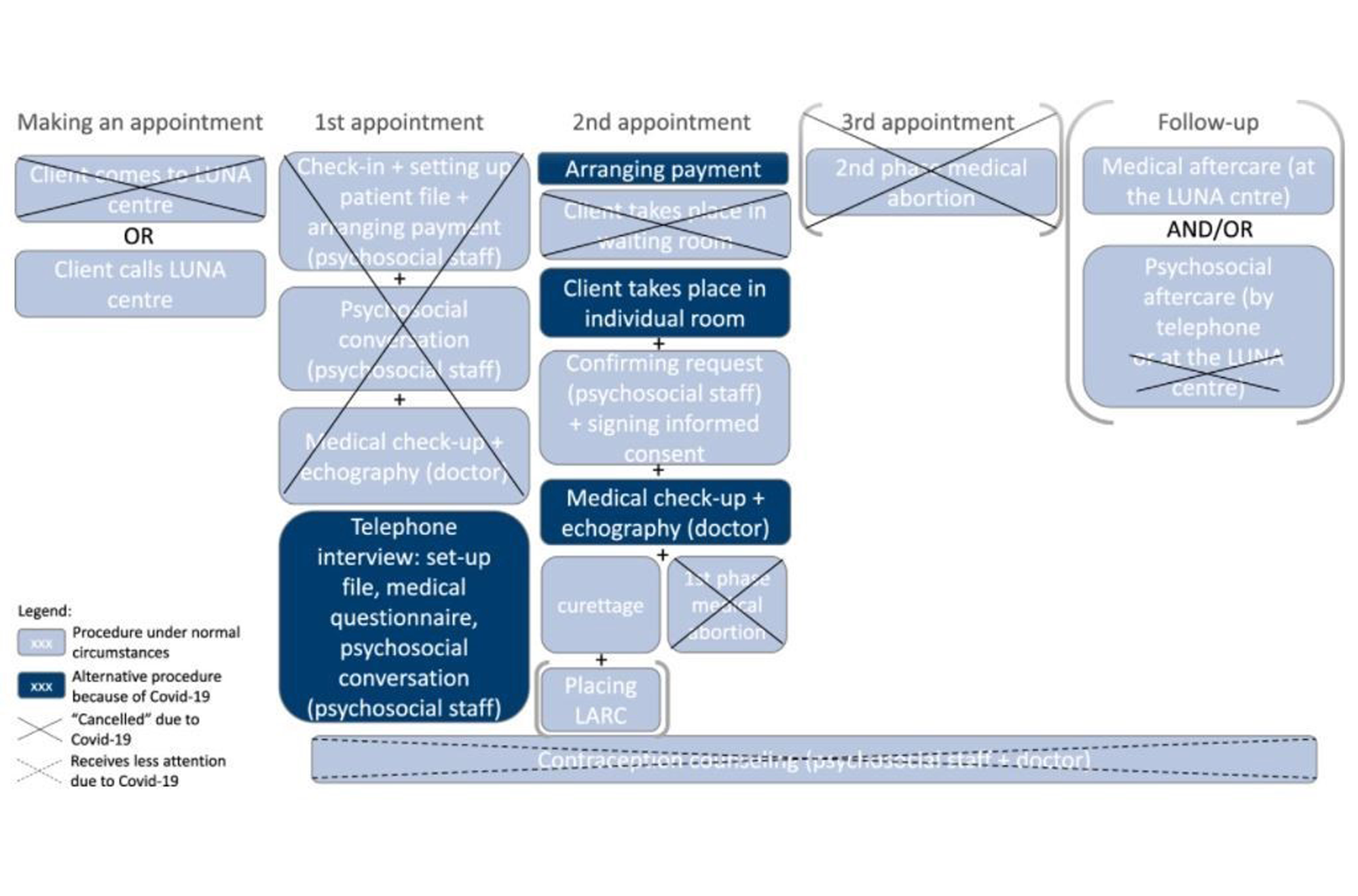
by Leen De Kort, Edwin Wouters, Sarah Van de Velde
Sexual and Reproductive Health Matters 2021;29(1)
Figure 2. Overview of the changes made in the abortion procedure due to Covid-19 protective measures
Abstract
The Covid-19 pandemic and corresponding measures impacted the organisation of services for abortion on request in Flanders, Belgium. This study describes abortion centre staff’s perceptions of the influence of protective measures on abortion consultations and procedures, and aims to identify obstacles and opportunities that arose from this situation. Through the anonymised patient records of one Flemish abortion centre, we compared the number of requests and abortions during the first lockdown (16 March–14 June 2020) with the same period in the five preceding years. Using a phenomenological approach, we documented the procedures and conducted interviews (all inductively coded in Nvivo) with the centre’s coordinator, seven psychosocial staff members and three doctors. Though fewer people requested and had an abortion, the pressure on the staff was high due to changed procedures. A substantial change was the substitution of telephone for in-person consultations, which the staff perceived as less suited for discussing worries, contraception counselling, and building trust. The centre remained accessible, but the staff perceived an influence on the emotional reactions of clients. Staff agreed that the lockdown did not negatively influence the abortion procedure itself. However, they felt a negative influence on the level of psychological support they could offer, especially in interactions with clients who were less certain of their choice and clients with whom there was no common language. When the lockdown was relaxed, a triage system was set up to ensure emotionally safe abortion care – as perceived by staff – for all clients.
From the Background
To the best of our knowledge, there is still no research addressing healthcare workers’ experience with delivering abortion services during Covid-19. Covid-19 precipitated an unexpected trial period in which abortion service providers had to quickly make changes in the way the abortion procedure was organised and comprehensive abortion care was offered, changes that might otherwise have been the topic of elaborate and prolonged debates. It therefore offers a unique opportunity to investigate a sudden turnaround in the organisation of abortion care, something that would otherwise have remained at the theoretical level. Our research aims to do this by researching the impact of covid-19 measures on the abortion service in Flanders, Belgium, through the eyes of the abortion centre’s staff.
To this end, this study presents information on how, within the Belgian context, abortion care (defined as the entire process a client and the centre progress through together: from the first contact to the option for after-care) was organised usually, and during the first Covid-19 lockdown. Data were obtained from anonymised patient records and through in-depth interviews with staff members from an abortion centre in a medium-sized Belgian city. We aimed to (1) identify differences in the prevalence of abortion requests and actual abortions during the lockdown, (2) map out the regular and adapted abortion service procedures, (3) describe how the staff experienced the implementation of the Covid-19 measures and its perceived influence on their professional functioning, on the quality of the services, and on the client’s experience, and (4) identify what lessons can be learned from this unexpected change in procedures.



